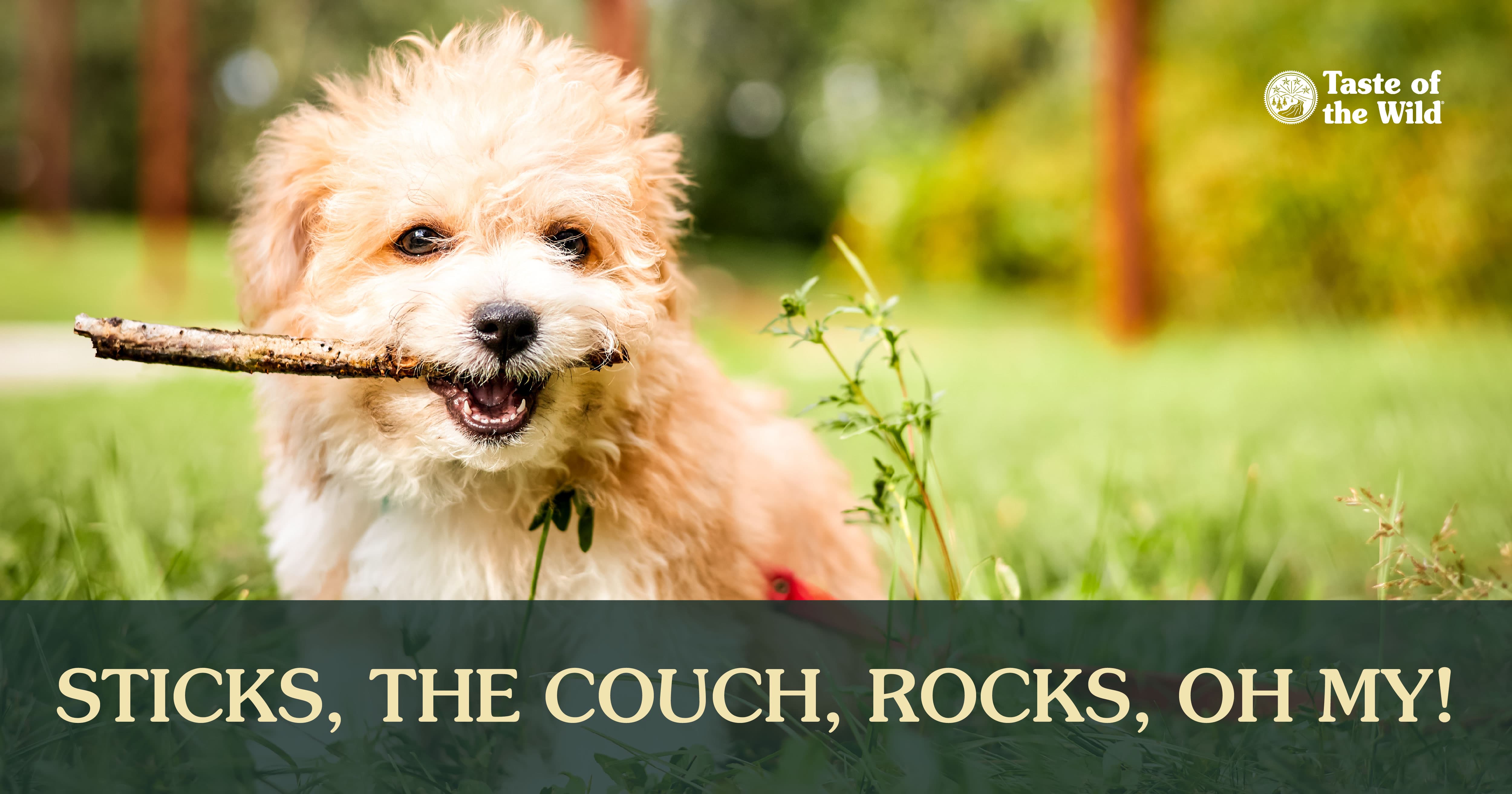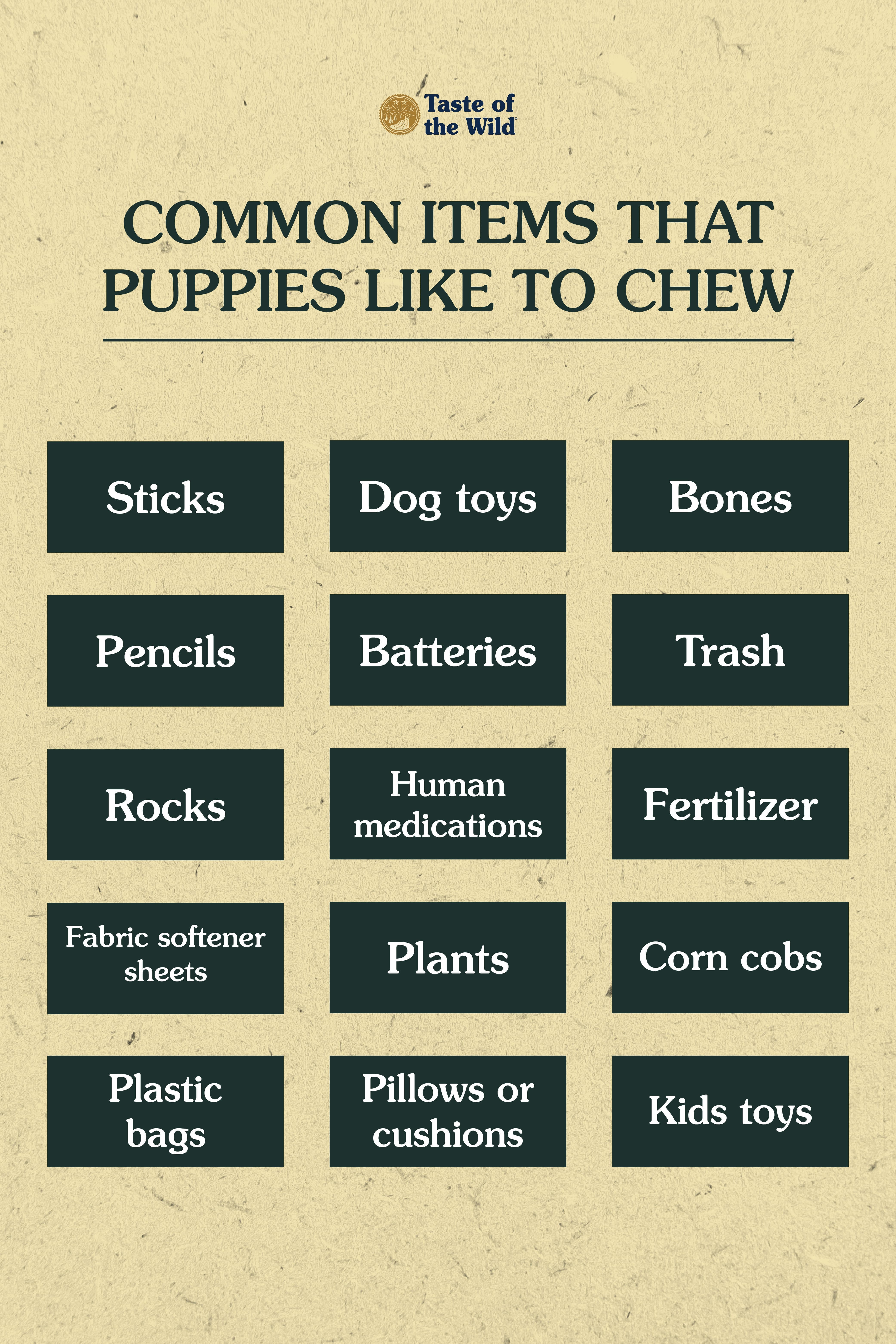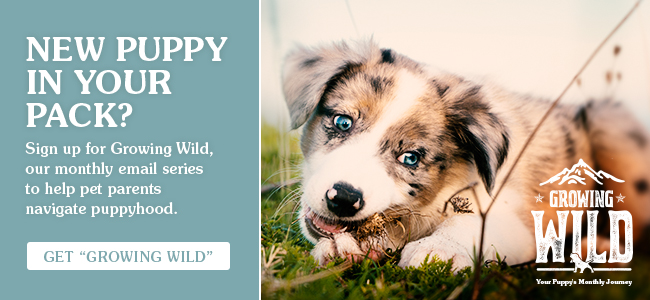
“What do you have in your mouth??!?”
It’s a question every puppy owner asks. Sometimes, very often.
Chewing is a natural instinct for a growing puppy. But puppies need to be taught what’s okay to chew and what’s not. They’re still learning how to navigate life, after all. Pet owners have seen anything from sticks to couch cushion pieces wedged between those chompers.
We recommend diverting their attention away from potentially hazardous items with the help of chew toys or the use of pet gates to keep the chewers confined to safe locations when they cannot be constantly supervised.
However, while we can recommend these tactics to divert a crisis, it’s also extremely realistic to expect accidents to happen. Puppies can be quick on their toe beans and chewing on an item one moment can turn into accidentally swallowing it the next. Puppy owners need to be prepared to act fast in these instances.
Hazardous Items Puppies Commonly Eat
Puppies eat items they shouldn’t out of boredom, hunger, scavenging instincts, underlying health conditions or because they’re teething. Watch out for these household items puppies commonly try to chew, rip up and/or swallow.

Call Your Local Veterinarian ASAP
If you see your puppy eat something they shouldn’t, your first step is to call your local veterinarian’s office or the nearest emergency animal clinic. Let them know what your pup ate and how much they consumed.
The doctor will be able to tell you if the object is small enough to pass (which happens within a matter of days), if there are any toxicity concerns, or if it’s best to come in for an exam.
Veterinarians may induce vomiting, utilize endoscopy, or perform surgery to safely retrieve the object before serious issues set in. They can also look for tears in the mouth, esophagus or stomach if the item in question has sharp edges, like sticks, rocks or pencils.
Note: Do not try to take matters into your own hands and make your dog throw up without talking to your vet first. It is best to have professional supervision in case anything goes awry.
What if I Only Suspect Something Was Ingested
Little Fido has just finished up playing outside and is ready for a rest on the living room floor. Over the next hour or so, your pupper seems to be a little off. You didn’t see them ingest anything they shouldn’t, but now you begin to question if they got into something.
What signs should you look for to know if they ate a hazardous item without your knowledge?
- Vomiting or dry heaving
- Not eating
- Lethargic
- Stretching a lot like they’re trying to relieve pressure built up in their stomach
- Grunting or moaning like they’re in pain
Call your veterinarian to discuss your situation as soon as you notice these symptoms. It’s better to go in for a visit and an X-ray to know what you’re dealing with — especially if you start to suspect they may have ingested something without you knowing.
My Puppy Repeatedly Eats Non-Food Items
If your puppy goes from chewing on items to repeatedly eating non-food items, they may have a medical issue called pica. The need to constantly eat non-food items can indicate nutritional deficiencies or behavioral issues such as anxiety or a compulsive disorder.
Your veterinarian can work with you and your puppy to find the root of the issue and ways to manage it. These management techniques can be as simple as proper anxiety treatments or adding in more exercise opportunities throughout the week. Your veterinarian will know best.
We hope your furry companion does not need to have an item removed from his or her stomach, but in the event they do, you’ll now properly be prepared to act fast. Keep your veterinarian’s phone number in an easily accessible location not only for you, but for any puppy sitters to have on hand as well.
RELATED POST: Common Household Items That Are Pet Poisons
The information in this blog has been developed with our veterinarian and is designed to help educate pet parents. If you have questions or concerns about your pet's health or nutrition, please talk with your veterinarian.

